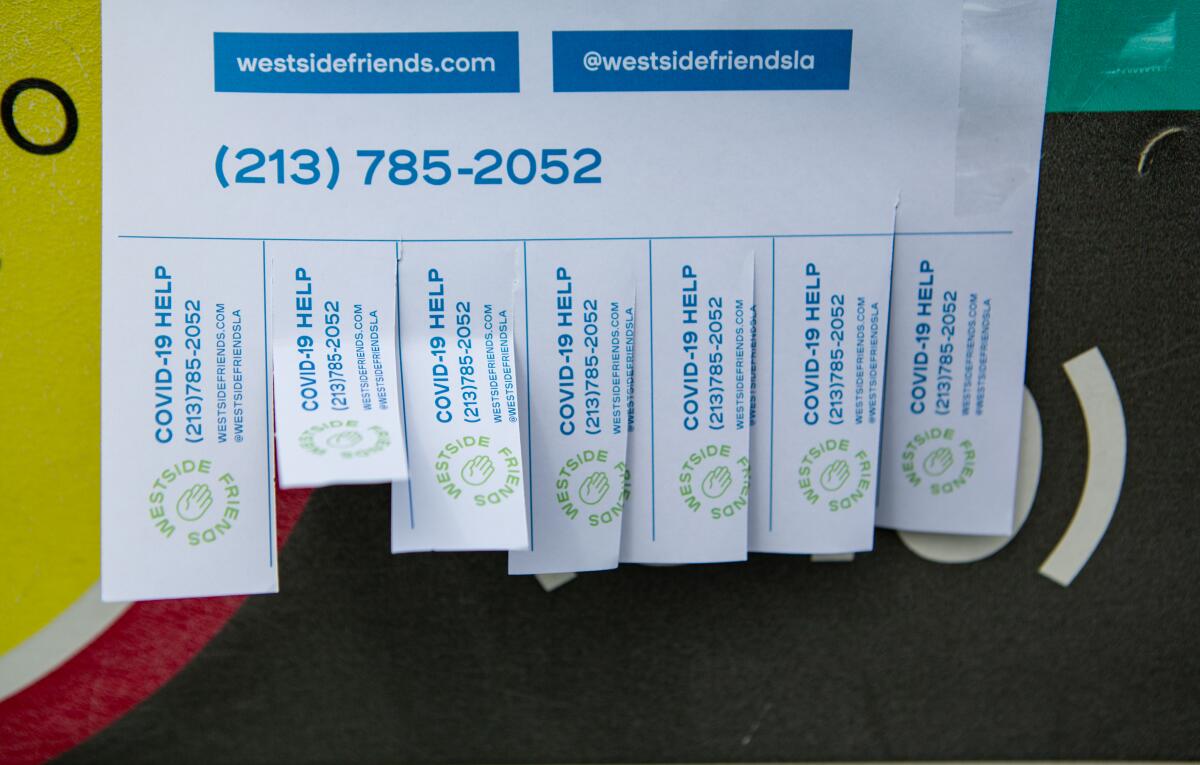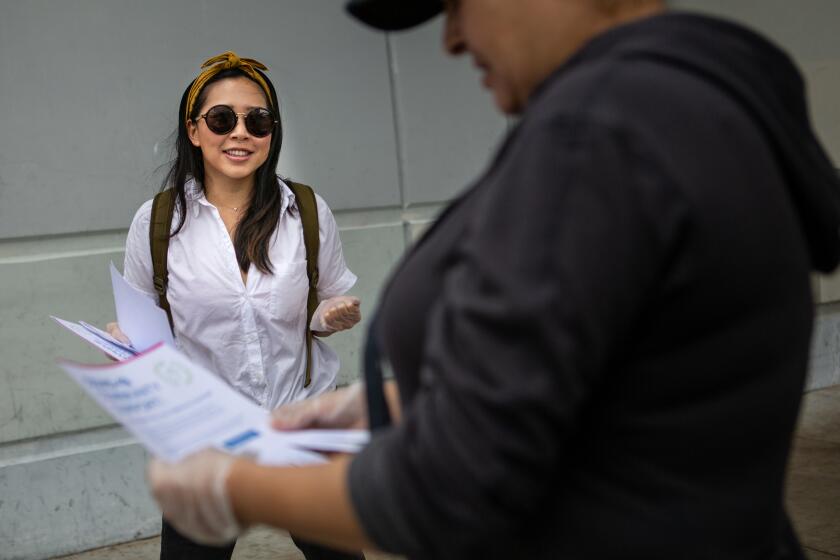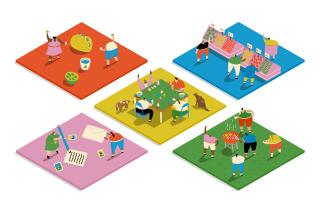Op-Ed: How to help others during a pandemic when they’re too embarrassed to ask

As the coronavirus tightens its grip on this country, your retired neighbor, an exhausted healthcare worker, or a friend recently laid off from work probably needs help now more than ever. Yet people who need help, often desperately, don’t ask. Why?
Although we’re all familiar with the saying, “It can’t hurt to ask,” our research, and that of many others, shows that it does hurt people to ask. Asking for help can be scary and uncomfortable, and people will often avoid doing it, even if they really need assistance.
There are lots of reasons for this. People might not ask because they’re embarrassed about their needs, or because they don’t want to impose on others. People are also afraid of getting turned down — no one wants to learn that the person who could help doesn’t care enough to do so.
Take the perspective of someone who needs help. Suppose you’re a server at a restaurant who lost your job because of the pandemic. You might really appreciate your more financially secure cousin giving you a loan to help tide you over.
Should you ask? Well, your cousin might know that you need help, and if she does, the fact that she hasn’t offered could mean that she doesn’t want to help. If you ask and she turns you down, you’re going to feel really bad. So, you think, “I should just avoid this whole ordeal and not reach out.”
This thought process is understandable. Yet, such fears are often unfounded. People are, in fact, more likely to help than potential favor-askers believe. Indeed, people are typically more willing to offer help to others than to seek the very same help for themselves. When you don’t ask out of fear of being turned down, know that the other person would probably think the same thing if roles were reversed.
Want to help your neighbors during the coronavirus crisis? Here is what some communities are doing.
This kind of reticence has a negative effect on both giver and receiver. Even in normal times, helping others empowers us and makes us feel good. Some psychologists even argue that it’s an important path to happiness. In times like this, it’s even more important: Helping gives us a sense of purpose and control over anxiety, fear, and uncertainty.
What does all this imply? If you need help, try to remember that others are probably happier to assist than you think. But, let’s face it. No matter how much we tell ourselves that others will step up, it can still be hard to ask.
That brings us to a second solution. If you can help others, don’t wait for a request — offer help now. Don’t assume that the lack of a request means they don’t want your help. It could be that they’re too uncomfortable to ask, or fear that you would turn them down. When you proactively offer help, you eliminate the uncertainty and anxiety associated with asking for aid.
The more specific you can be in your offer, the better. Instead of vaguely saying, “Let me know if you need anything,” be concrete. If it is safe for you to do so, tell your more senior neighbors that you would be happy to pick up groceries or medications for them. If you can afford it, buy a gift card from your favorite local restaurant. If you know anyone who is a healthcare worker, offer to bring them home-cooked meals. If you have a friend who might be struggling emotionally or psychologically right now, reach out.
The nice thing about offering assistance before someone asks is that both parties reap psychological benefits. Our research shows that not only does offering help save others from doing something many find quite difficult, it will make you feel even better than if you only agreed to help after they asked.
As COVID-19 continues to spread and test the limits of our healthcare system, our economy and our sanity, supporting one another actively and intentionally is going to become increasingly important. Yes, you should ask for help when you need it. But even more importantly, offer help to your friends, your family, your neighbors and even strangers — and do it often. It will help not just them, but you, as well.
Ania Jaroszewicz is an Institute Fellow at Harvard University and a PhD student at Carnegie Mellon University. George Loewenstein is a professor of economics and psychology at Carnegie Mellon University.
More to Read
A cure for the common opinion
Get thought-provoking perspectives with our weekly newsletter.
You may occasionally receive promotional content from the Los Angeles Times.











